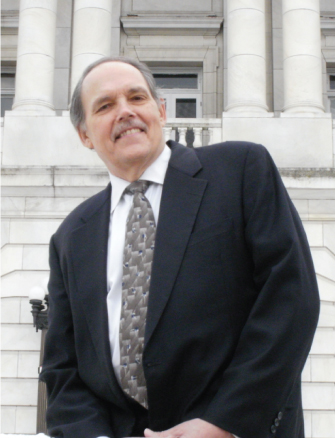


New Jersey Adoption Act N.J.S.A. 9:3-37 et .al. 1989 Amendments
Mr. Miskowski testified before the State Legislature on behalf of the American Academy of Adoption Attorneys as to the merits of permitting private, independent adoptions by prospective adoptive parents with the assistance of licensed Attorneys. With the support of a few other dedicated attorneys the legislation was enacted into law. This led to significantly more children being adopted in New Jersey under the new amendments to the adoption laws.
Adoption and Safe Families Act of 1997 (P.L. 105-89)
Mr. Miskowski served as an adviser to the White House on Adoption in 1995 which culminated in the passage of the Adoption and Safe Families Act of 1997. The Act substantially changed the laws with regard to foster care in America.
The Act requires that a child’s health and safety be “paramount” in an effort to preserve or reunite a child into the child’s family. It also directed that children in the foster care system throughout the country had to be permanently placed within a reasonable period of time (e.g. 18 months) after being placed in a state’s system. Prior to this law the average length of time a child was in foster care was over 8 years. It also directed that states which could not place children within such a time-frame must seek assistance from other states and there could no longer be discrimination in placements based on the sex or race of the adoptive parents.
New Jersey Adoption Act Amendments in 1998
As a result of the infamous birth father case known as “Baby D” set forth herein under Major Litigation, the State Legislature enacted new amendments to the Adoption Act establishing the rights and obligations of unwed birth fathers in non-relative independent adoptions. “Baby D” was ordered by a trial court to be turned over to a birth father after having resided with the adoptive parents since birth for more than four (4) years. The trial court refused to have a “best-interest” hearing as to whether the transfer would be in the best interest of the child. The Appellate Division reversed the trial court and ordered a “best interest” hearing as to the matter.
As a result of this landmark case, the State Legislature asked Mr. Miskowski to re-write the Adoption Act on birth father’s rights and obligations. They also requested a change in the standard to terminate parental rights from an “unfitness” standard to a “best interest” standard inorder that the child’s rights could prevail.
The Law now states birth mothers do not have to identify any man as the father of her child. Nor is there any obligation on the birth mother or the State to inform anyone about her pregnancy. The Act eliminates the defense of subjective ignorance by alleged birth fathers of recognizing the act of sexual intercourse within 300 days before birth as constituting constructive knowledge of paternity. An exception applies where the birth mother perpetrates a fraud on the birth father, and allows him more time to respond, but in no event can his rights survive the final judgment of adoption. The time within which a birth father must come forward to establish his paternity is now limited. It is restricted to the period of the pregnancy plus an additional 120 days after the birth. Within that time period he must either file an action to establish his paternity or to amend the child’s birth certificate.
This legislation has important implications for women, as well. It more equitably apportions the responsibilities of men and women in creating a child and planning for its future, and it protects women’s privacy rights by relieving them of the responsibility of confronting past sexual partners with the fact of their pregnancy.